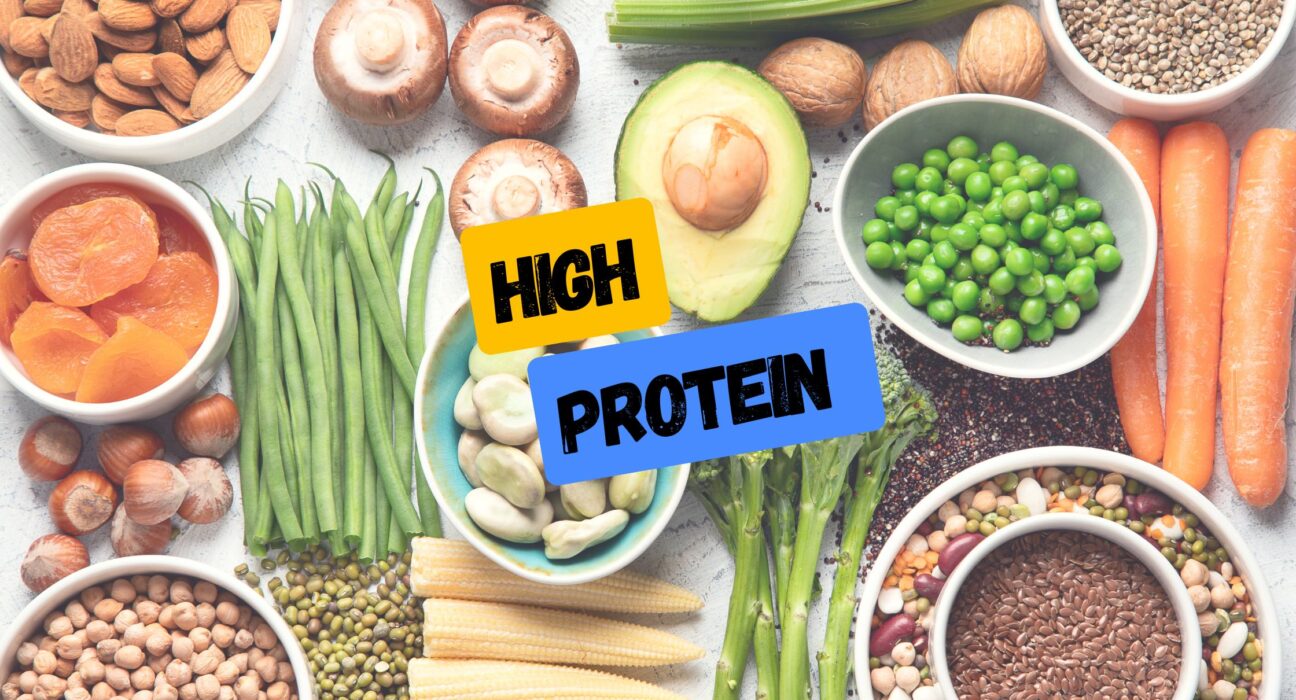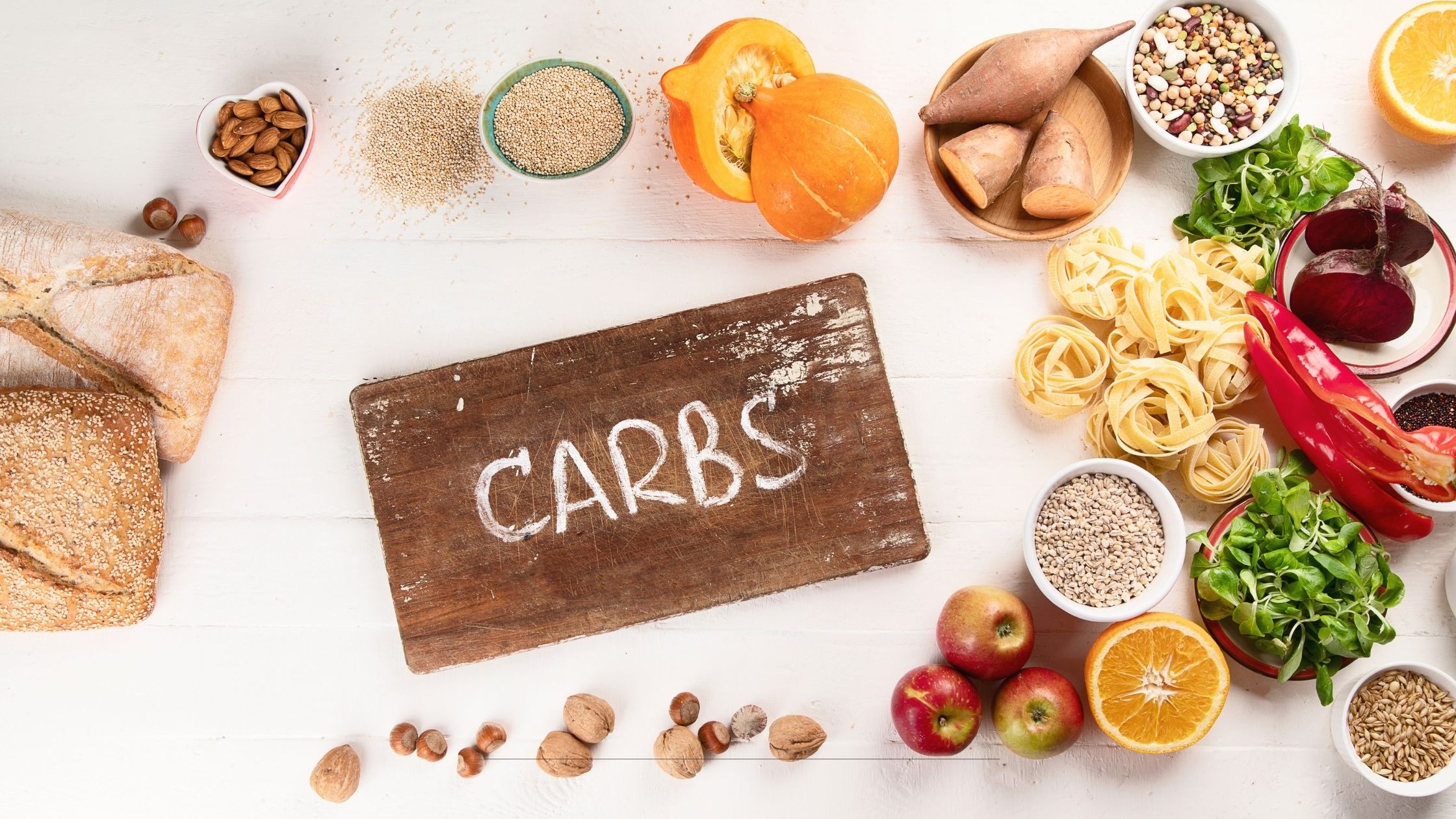High-Protein Plant Foods for Fitness & Health

In today’s health-conscious world, protein is no longer just the realm of bodybuilders or meat lovers. More people are turning to high protein plant foods not only for ethical and environmental reasons but also for their remarkable health benefits. Whether you’re a fitness enthusiast, a vegan athlete, or someone striving for better health, plant-based protein sources can help build muscle, enhance recovery, and support overall wellness.
This comprehensive guide explores the best plant-based protein options, how they compare to animal protein, and why they’re essential for fitness and health. Plus, we’ll share five trusted research-based resources throughout this post to support your nutritional journey.
Why Protein Is Vital for Health and Fitness
Protein is a macronutrient your body relies on to build and repair tissues, enzymes, hormones, and muscles. For those pursuing a fitness-focused lifestyle, adequate protein intake is especially important for:
-
Muscle growth and recovery
-
Tissue repair post-exercise
-
Immune function
-
Satiety and weight management
While animal-based protein has been the go-to for decades, a growing body of research confirms that plant proteins can be just as effective—if not better in some cases—at supporting a healthy and active lifestyle.
The Rise of Plant-Based Protein in Modern Diets
More athletes, nutritionists, and health experts now advocate for plant-based protein. The shift isn’t just ethical—it’s backed by science. Plant proteins are naturally lower in saturated fat, cholesterol-free, and often come packaged with fiber, antioxidants, and phytonutrients.
A 2019 study published in Nutrients found that plant-based diets can support athletic performance and recovery without compromising strength or endurance. In fact, incorporating a variety of high protein plant foods can deliver all the essential amino acids your body needs when done correctly.
Top 15 High-Protein Plant Foods to Include in Your Diet
Below are some of the most potent plant-based protein sources to support your fitness and health goals:
1. Lentils
-
Protein: 18g per cooked cup
-
Rich in iron, fiber, and folate, lentils are excellent for muscle recovery and energy production.
2. Chickpeas (Garbanzo Beans)
-
Protein: 15g per cooked cup
-
Great for building lean muscle, chickpeas are versatile and can be added to salads, curries, or roasted for snacks.
3. Quinoa
-
Protein: 8g per cooked cup
-
One of the few complete plant proteins, quinoa provides all nine essential amino acids and is gluten-free.
4. Tofu
-
Protein: 10g per ½ cup
-
Made from soybeans, tofu is highly digestible and adaptable for countless dishes, from stir-fries to smoothies.
5. Tempeh
-
Protein: 17g per 3-ounce serving
-
A fermented soy product, tempeh contains probiotics that support gut health along with protein for muscles.
6. Black Beans
-
Protein: 15g per cooked cup
-
High in fiber and antioxidants, black beans aid in digestion and energy levels.
7. Edamame
-
Protein: 18g per cooked cup
-
These young soybeans are a powerhouse snack packed with protein, calcium, and magnesium.
8. Seitan
-
Protein: 21g per 3-ounce serving
-
Made from wheat gluten, seitan has a meat-like texture and is one of the richest plant-based protein sources.
9. Chia Seeds
-
Protein: 5g per 2 tablespoons
-
Loaded with omega-3 fatty acids and fiber, chia seeds are ideal for smoothies, oatmeal, or puddings.
10. Hemp Seeds
-
Protein: 10g per 3 tablespoons
-
A complete protein with healthy fats, hemp seeds support muscle repair and hormone balance.
11. Pumpkin Seeds
-
Protein: 7g per 1 ounce
-
Also rich in magnesium and zinc, pumpkin seeds can boost immunity and strength.
12. Peanuts and Peanut Butter
-
Protein: 7g per 2 tablespoons
-
Although calorie-dense, peanuts offer muscle-fueling protein and healthy fats for endurance athletes.
13. Oats
-
Protein: 6g per cooked cup
-
Oats are great for breakfast or post-workout recovery, offering a balance of protein, fiber, and carbs.
14. Nutritional Yeast
-
Protein: 8g per 2 tablespoons
-
Known for its cheesy flavor, this complete protein also provides a natural source of B12 for vegans.
15. Spirulina
-
Protein: 8g per 2 tablespoons
-
A blue-green algae rich in antioxidants and iron, spirulina is often used as a supplement in smoothies.
Best Practices for Getting Enough Protein on a Plant-Based Diet
While individual plant foods may not always provide all essential amino acids, combining different sources throughout the day ensures complete protein intake.
Tips:
-
Combine legumes (like lentils) with grains (like rice) for a complete protein.
-
Incorporate a variety of high-protein plant foods daily.
-
Consider plant-based protein powders from peas, hemp, or brown rice for post-workout supplementation.
Plant-Based Protein for Muscle Gain
Contrary to the myth that you need meat to build muscle, many plant-based athletes have achieved incredible physiques and strength using only plant-based protein for muscle gain. The key lies in:
-
Consistent resistance training
-
Adequate caloric intake
-
Proper protein timing (especially post-workout)
-
Combining complementary protein sources
Plant Protein vs Animal Protein: How Do They Compare?
When evaluating plant protein vs animal protein, several differences stand out:
| Feature | Plant Protein | Animal Protein |
|---|---|---|
| Cholesterol | None | High in many sources |
| Saturated Fat | Generally low | Often high |
| Fiber Content | High | None |
| Antioxidants | Rich source | Limited |
| Environmental Impact | Low carbon footprint | High environmental cost |
| Amino Acid Profile | Often incomplete (but combinable) | Usually complete |
For those concerned about muscle gain or nutrient bioavailability, combining various plant sources ensures optimal benefits.
Learn more about plant vs animal protein comparison in this research published by the National Institutes of Health.
Best Vegan Protein Sources for a Balanced Diet
A well-planned plant-based diet can meet—and even exceed—your protein needs. Some of the best vegan protein sources include:
-
Tofu and tempeh
-
Beans and lentils
-
Whole grains like quinoa and amaranth
-
Nuts, seeds, and their butters
-
Plant-based protein powders (pea, rice, hemp)
These choices not only deliver protein but also offer essential vitamins, minerals, and heart-protective nutrients.
For deeper guidance, the Physicians Committee for Responsible Medicine outlines key vegan protein sources and how to use them effectively.
High-Protein Vegan Meal Ideas for Fitness Lovers
If you’re looking for inspiration, here are some delicious, high-protein plant-based meals that support muscle recovery and energy:
-
Chickpea quinoa salad with lemon-tahini dressing
-
Tofu stir-fry with edamame and brown rice
-
Lentil bolognese served with whole grain pasta
-
Overnight oats topped with hemp and chia seeds
-
Seitan tacos with black beans, avocado, and greens
For more plant-based meal ideas, explore this vegan athlete meal guide.
How Much Plant Protein Do You Really Need?
The Recommended Dietary Allowance (RDA) for protein is about 0.8 grams per kilogram of body weight for the average adult. However, for active individuals, athletes, or those seeking muscle growth, this can range from 1.2 to 2.0 grams per kilogram.
Example:
-
A 70 kg active individual may need up to 140g of protein per day.
Track your intake with nutrition apps or consult a dietitian to fine-tune your needs.
Use Harvard’s Protein Calculator to estimate your daily protein requirement based on your lifestyle.
Benefits of High Protein Plant Foods for Overall Health
Incorporating more plant-based protein into your diet can offer a range of benefits beyond just fitness:
-
Lower risk of chronic diseases (heart disease, type 2 diabetes)
-
Improved digestion (thanks to fiber)
-
Better weight management
-
Reduced inflammation
-
Stronger immune function
As noted by the World Health Organization, diets rich in plant-based foods contribute to longevity and reduced risk of disease.
Conclusion: Embrace High-Protein Plant Foods for Lasting Health and Strength
Shifting to high protein plant foods doesn’t mean compromising on muscle gains, energy, or nutrition. With the right planning and food combinations, a plant-based diet can provide all the protein you need for peak performance and vibrant health.
Whether you’re seeking fitness goals or simply aiming to eat healthier, the power of plants is undeniable. From lentils and quinoa to tempeh and chia seeds, these protein-packed foods can transform your meals—and your health.
All content on this website is for general informational, educational, and entertainment purposes only. It is not a substitute for professional advice in any field, including but not limited to health, fitness, nutrition, wellness, finance, legal, technology, or lifestyle.
While we strive for accuracy, we make no guarantees about the completeness, reliability, or suitability of the information. Any action you take based on this content is at your own risk.
Always consult a qualified professional before making decisions related to health, finances, legal matters, or any other specialized area. The website and its authors are not liable for any loss, injury, or damage resulting from use of this information.






